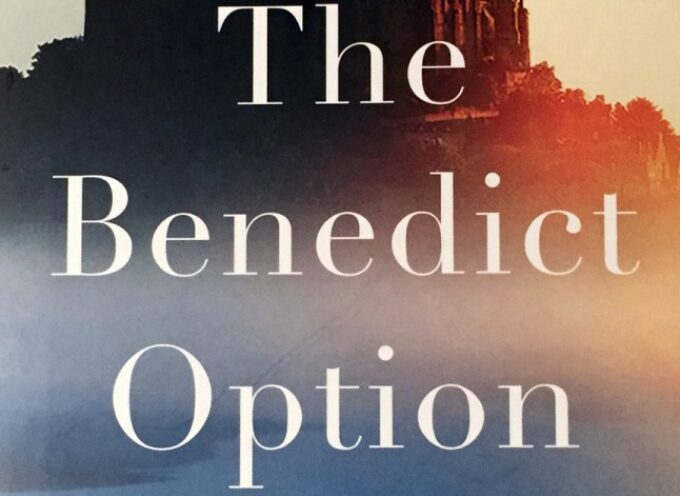In one sense, the Bible is about us. But in a deeper and logically prior sense, it is about God. Composed of sixty-six books written by numerous authors and multiple genres, it nonetheless exhibits the coherence and quality of a grand dramatic narrative. In it, God is the director, screenwriter, and main actor. As the story peaks, God reveals himself through Jesus Christ, the exemplar and exact representation of God.
Yet, God is joined by a dizzying array of actors. Throughout the Bible, we learn of bad actors (e.g. Satan, Cyrus) and good actors (e.g. Abraham, Moses, Paul). Moreover, in the penultimate Act of this dramatic narrative, we learn that we ourselves are appointed as actors. God calls us to act as his representatives in the world through our attitudes, actions, and words.
What’s more, we learn that God wishes for us to take “acting” classes from the exemplars who have gone before us (Heb 11). And, while those exemplars are men and women of great faith, they are nonetheless “mixed bags.” By nature of their fallen humanity, they failed to act consistently in an exemplary manner.
Thus, the Bible offers Jesus as the exemplar extraordinaire, the actor whose representation of God was thoroughly, pervasively, perseveringly true and good. Jesus is the truer and better Adam who scored 100% on his exam in the garden and whose obedience is imputed to us. Jesus is the true and better Abraham who answered the call of God to leave his comfortable context and go out into the world to create a new people of God. Jesus Is the truer and better Moses, the true prophet who was the light of the world. Jesus is the truer and better Paul, who had no thorn in his flesh, whose entire life was exemplary in every manner.
How is Jesus the Truer and Better Job? (4 Ways)
Indeed, Jesus is truer and better than any merely human exemplar. The same can be said of his relationship to Job.
As we have seen, Job’s story is one of transformation through suffering. He was a person just like us, a fallen creature living in a fallen world. Yet unlike us, he was relatively “blameless,” a man seemingly without equal. Also, unlike the vast majority of the world’s inhabitants, he experienced in the blink of an eye the loss of his possessions and all ten of his children. Yet, even when his character defects surfaced and his flaws were revealed, he wrestled honestly and humbly with God throughout his hellish journey.
How is Job like Jesus? How is he different? More to the point, how is Jesus the truer and better Job?
First, both Job and Jesus were blameless. Concerning Job, God considered him a “blameless and upright” man. Yet Job was blameless only in comparison to other humans in general. He was a sinner, as the story reveals. Yet, Jesus was blameless in an absolute sense. He was, quite literally, without sin (2 Cor 5:21).
Second, both Job and Jesus suffered unjustly. Job lost his possessions, his children, and even his health, such that he could not even sleep. Moreover, he suffered emotionally as his friends mocked and belittled him. Job’s suffering was caused by the Evil One. Like Job, Jesus suffered at the hand of Satan and his minions. During his life on earth, he had nowhere to lay his head. He was stripped publicly, mocked, tortured, and finally slaughtered. Yet, Christ experienced God the Father’s actual abandonment while, in Job’s case, God only appeared to have abandoned him.
Third, both Job and Jesus waged war in the heavenly realms. Although Job did not know he was Satan’s pawn, he wrestled with his unjust suffering and eventually came through faithfully. Yet Christ, whose spiritual warfare was even more intense, never wavered in his faith and was able to declare, “Not my will, but yours, be done” (Lk 22:41-44). And while Job’s spiritual victory involved restoration of his former blessings and transformation of his faith, Jesus’ victory involved resurrection from the dead and installment at the right hand of the Father.
Fourth, while Job gave his friends the benefit of the doubt, Jesus offers to his enemies the forgiveness of their sin. Toward the end of the Job narrative, this restored man of God prayed for his friends. Yet, Christ did even better. He not only prays eternally for his people (Heb 7:25) but also offers reconciliation to his enemies (Rom 5:8-10).
Why Learn from Job if Jesus is Truer and Better?
Why, therefore, should we glean lessons from Job’s life if Jesus is truer and better? Because Job is more like us. Being a sinner like us, he experienced suffering similar to ours. Being a flawed man on a difficult journey, he experienced spiritual growth and transformation in a way that we might experience during our lives. Just as Job allowed God to correct his character defects and deficient understanding, so we can open ourselves to the same.
What, therefore, should we learn from Christ, if Job is the closer analogy to fallen sinful existence? From the Lord Christ, we can learn of God’s persevering love in the midst of our suffering. Will not Jesus, who endured such affliction, empathize with us in our pain? Indeed, just as we might imagine that Job would empathize with our suffering, so Christ’s capacity for faithfulness and empathy are inestimably greater. He is the lion-like lamb who suffered for the sins of the world and who not only empathizes with our pain but will one day return to vanquish pain and suffering once for all.
For this reason, we pray, “Our Father who art in heaven, hallowed be thy name. Thy kingdom come, thy will be done, on earth as it is in heaven.” When experiencing the pains and trials of this Fallen world, we must appeal to our loving Father. We must pray for his will to be done right now in the midst of our suffering. And we must place our ultimate hope in the day that Christ will return, as J.R.R. Tolkien wrote, “to make everything sad come untrue.”
Subscribe
Never miss a post! Have all new posts delivered straight to your inbox.







